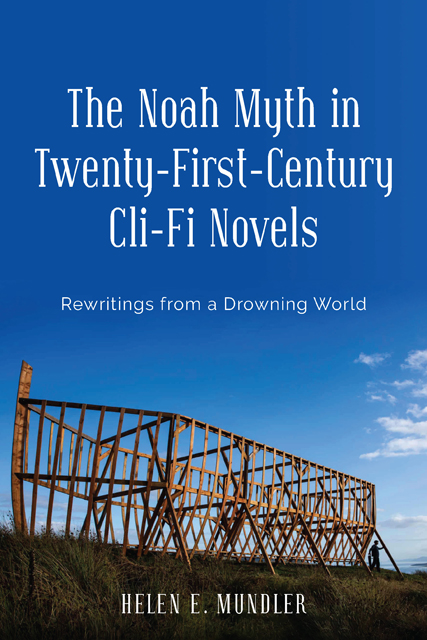Book contents
- Frontmatter
- Dedication
- Epigraph
- Contents
- Acknowledgments
- List of Abbreviations
- Introduction
- 1 An Odd Sort of Cli-Fi? Nathaniel Rich’s Odds Against Tomorrow
- 2 “Hadn’t mankind done it before—started from scratch?” Reinterpreting Visions of Past and Future in Margaret Atwood’s Maddaddam trilogy
- 3 Watering Down? Clare Morrall’s When the Floods Came
- 4 The Archive and After: A Kaleidoscopic Reading of Maggie Gee’s The Flood
- Conclusion
- Works Cited
- Index
4 - The Archive and After: A Kaleidoscopic Reading of Maggie Gee’s The Flood
Published online by Cambridge University Press: 17 December 2022
- Frontmatter
- Dedication
- Epigraph
- Contents
- Acknowledgments
- List of Abbreviations
- Introduction
- 1 An Odd Sort of Cli-Fi? Nathaniel Rich’s Odds Against Tomorrow
- 2 “Hadn’t mankind done it before—started from scratch?” Reinterpreting Visions of Past and Future in Margaret Atwood’s Maddaddam trilogy
- 3 Watering Down? Clare Morrall’s When the Floods Came
- 4 The Archive and After: A Kaleidoscopic Reading of Maggie Gee’s The Flood
- Conclusion
- Works Cited
- Index
Summary
Ending It All: The Flood in Context
While Clare Morrall’s When the Floods Came is set entirely in the “afterwards,” Maggie Gee’s The Flood is set in a time just before a complete and totalizing ending comes about. The pervasive sense of coming up against an end point recalls the “before” of Margaret Atwood’s trilogy, in which the limits of capitalism and the destruction of the Earth are very evident. Gee’s novel is more allusive, less anchored in what might be termed real possibilities, than Atwood’s trilogy, but the sense of the impossibility of progress is comparable, and in Gee’s text it is reinforced by the novel’s geography: rather than offering a broad sweep across North America and Asia, as Atwood’s trilogy does, or even giving a sense of a country as a whole, like When the Floods Came, The Flood operates microcosmically, being based on just one city—a city in which there is no more space to develop: “Every scrap of land has a building on it” (TF, 16). This is an important point because it suggests that the occupants of the city—who stand for all humankind—have no further room for advancement, and that humanity itself is “blocked” or “stalled” (Makdisi, 744) and bumping up against some kind of ending. Moreover, childlessness is rife—the city is “full of childless women” (TF, 65)—a circumstance that also suggests a compromised future. Neither is the city capable of meeting the needs of its citizens: public services are winding down and are no longer fit for purpose (13), which suggests once more a society in decline.
All the novels discussed in this book demonstrate a cyclical engagement with time, a starting-again after the end, in line with James Berger’s thinking on apocalypse, but only Gee’s novel actually brings to an end all human life—with the local standing for the global, as is the case in the Noah myth itself (see Introduction).
- Type
- Chapter
- Information
- The Noah Myth in Twenty-First-Century Cli-Fi NovelsRewritings from a Drowning World, pp. 89 - 112Publisher: Boydell & BrewerPrint publication year: 2022



